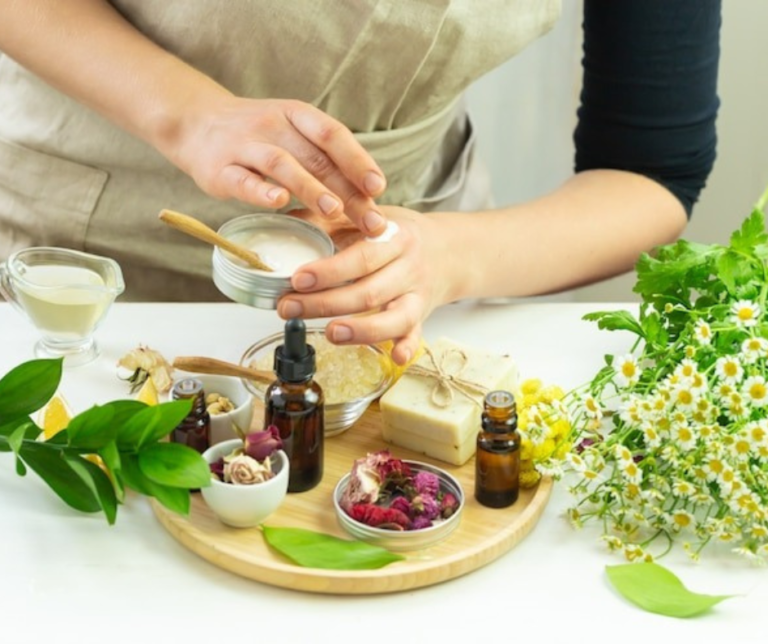Herbal Remedies for Common Health Issues: A Natural Approach to Wellness
Meta Description: Discover effective herbal remedies for headaches, colds, digestion, anxiety, and more. Learn how nature’s medicine cabinet can support your health naturally and safely.
Introduction
In a world filled with over-the-counter medications and synthetic treatments, many people are turning back to nature’s wisdom—herbal remedies. Used for thousands of years across cultures, herbs offer a gentle yet powerful way to treat common health issues, boost immunity, and promote long-term well-being.
From easing digestive discomfort to relieving stress and improving sleep, herbs can play a significant role in your daily wellness routine. This article dives into trusted, research-backed herbal remedies for everyday ailments and how to use them safely.
Why Choose Herbal Remedies?
Herbal medicine is not just “old wives’ tales.” Modern research is continually validating what traditional medicine has known for centuries. Here are some benefits of using herbs:
- Natural and holistic: Herbs often treat the root cause, not just symptoms.
- Fewer side effects: When used correctly, herbs are gentler on the body.
- Affordable and accessible: Many remedies can be found in your kitchen or garden.
- Versatile use: Can be taken as teas, capsules, tinctures, powders, or oils.
Important Note Before Using Herbs
While herbs are natural, they are not always harmless. Some can interact with medications or be unsafe in pregnancy or for certain conditions.
Always consult a qualified herbalist or healthcare professional before starting a new herbal remedy.
Herbal Remedies for Common Health Issues
1. Headaches and Migraines
Herbs: Peppermint, Feverfew, Ginger
- Peppermint oil: Applying diluted peppermint essential oil to the temples can ease tension headaches.
- Feverfew: Used traditionally for migraines, it helps reduce inflammation and spasms in blood vessels.
- Ginger: Works as a natural pain reliever and can reduce migraine-related nausea.
How to use:
- Peppermint oil: Topical use only
- Feverfew: Capsule or tea
- Ginger: Tea or fresh grated in water
2. Digestive Issues (Bloating, Gas, Indigestion)
Herbs: Chamomile, Fennel, Peppermint, Ginger
- Chamomile: Calms the stomach, reduces cramping, and supports digestion.
- Fennel: Relieves bloating and gas—commonly used after meals in Indian households.
- Peppermint: Relaxes gut muscles and is excellent for IBS symptoms.
- Ginger: Aids digestion and reduces nausea.
How to use:
- All of the above can be used in tea form
- Fennel seeds can be chewed after meals
3. Colds and Respiratory Infections
Herbs: Echinacea, Elderberry, Thyme, Licorice Root
- Echinacea: Boosts the immune system and shortens the duration of colds.
- Elderberry: Rich in antioxidants; reduces cold and flu severity.
- Thyme: Natural expectorant—loosens mucus and supports cough relief.
- Licorice Root: Soothes sore throat and cough (avoid if you have high blood pressure).
How to use:
- Echinacea and elderberry: Syrups or tinctures
- Thyme and licorice: Tea or steam inhalation
4. Insomnia and Poor Sleep
Herbs: Valerian Root, Passionflower, Chamomile, Ashwagandha
- Valerian Root: One of the most researched herbs for insomnia.
- Passionflower: Reduces anxiety and promotes deeper sleep.
- Chamomile: A gentle sedative, perfect as a pre-bed tea.
- Ashwagandha: An adaptogen that regulates cortisol and supports restful sleep.
How to use:
- Teas, capsules, or tinctures
- Ashwagandha works best when taken consistently
5. Anxiety and Stress
Herbs: Ashwagandha, Lemon Balm, Lavender, Rhodiola Rosea
- Ashwagandha: Balances stress hormones and improves resilience.
- Lemon Balm: Calms the nervous system and improves mood.
- Lavender: Used aromatically or in teas to reduce anxiety.
- Rhodiola: Helps with mental fatigue and supports adrenal health.
How to use:
- Lemon balm and lavender: Tea
- Rhodiola and ashwagandha: Capsules or tinctures
6. Boosting Immunity
Herbs: Turmeric, Garlic, Astragalus, Elderberry
- Turmeric (Curcumin): Anti-inflammatory and antioxidant powerhouse.
- Garlic: Antiviral and antibacterial properties; great for warding off infections.
- Astragalus: Strengthens the immune system and protects against colds.
- Elderberry: Prevents and treats upper respiratory infections.
How to use:
- Turmeric: In food or as golden milk
- Garlic: Raw or in supplements
- Astragalus and elderberry: Tincture or syrup
7. Skin Conditions (Acne, Eczema, Rashes)
Herbs: Calendula, Neem, Aloe Vera, Tea Tree
- Calendula: Soothes inflammation and speeds healing of cuts and eczema.
- Neem: Antibacterial and antifungal—great for acne and itchy skin.
- Aloe Vera: Cools and hydrates sunburns, rashes, and acne.
- Tea Tree Oil: Treats acne and fungal infections (use diluted).
How to use:
- Calendula and neem: Cream or infused oil
- Aloe: Fresh gel or store-bought
- Tea tree: Spot treatment (diluted with carrier oil)
8. Hormonal Imbalance and PMS
Herbs: Vitex (Chasteberry), Dong Quai, Maca Root, Evening Primrose
- Vitex: Regulates hormones and relieves PMS and irregular periods.
- Dong Quai: Used in traditional Chinese medicine to balance female hormones.
- Maca Root: Supports libido and energy during hormonal shifts.
- Evening Primrose: Eases breast tenderness and mood swings.
How to use:
- Capsules, teas, or tinctures
- Best taken consistently for 2–3 cycles
9. Joint Pain and Inflammation
Herbs: Turmeric, Boswellia, Ginger, Devil’s Claw
- Turmeric: Curcumin reduces inflammation in joints.
- Boswellia: A resin with powerful anti-inflammatory effects for arthritis.
- Ginger: Natural pain reliever.
- Devil’s Claw: Known for relieving back and joint pain.
How to use:
- Capsules or teas
- Turmeric and ginger can be used in cooking
10. Liver Detox and Cleanse
Herbs: Milk Thistle, Dandelion Root, Burdock Root
- Milk Thistle: Protects liver cells and supports regeneration.
- Dandelion Root: Stimulates bile production and aids digestion.
- Burdock Root: Blood purifier and supports liver detox.
How to use:
- Teas, tinctures, or supplements
Safety Guidelines for Using Herbal Remedies
- Start slow: Use a small dose and observe how your body responds.
- Check interactions: Some herbs can interfere with medications (e.g., blood thinners).
- Buy quality: Use organic, non-GMO herbs from trusted suppliers.
- Pregnancy caution: Some herbs are unsafe during pregnancy or breastfeeding.
- Avoid long-term use without professional guidance.
FAQs About Herbal Remedies
Q: Are herbal remedies safe for children?
Some are, but dosages differ, and not all herbs are child-safe. Always consult a pediatric herbalist or doctor.
Q: How long does it take for herbs to work?
Some herbs (like peppermint for headaches) work quickly. Others (like ashwagandha for stress) may take weeks for full effects.
Q: Can I use multiple herbs together?
Yes, many herbs complement each other. However, stick to 2–3 at a time to avoid overwhelming your system.
Conclusion: Embrace Nature’s Medicine Cabinet
Herbal remedies offer a gentle, effective, and time-tested way to manage many everyday health issues. Whether you’re looking to ease anxiety, fight a cold, or improve digestion, there’s likely an herb that can help.
By incorporating these herbal allies into your daily life—through teas, capsules, tinctures, or topical treatments—you can take a proactive and natural approach to wellness.
Remember, herbs work best when combined with a healthy lifestyle: nutritious food, regular movement, good sleep, and stress management.
Would you like the next article to be on:
- “Adaptogenic Herbs to Boost Stress Resilience”
- “DIY Herbal Tea Recipes for Common Ailments”
- “How to Start Your Own Herbal Medicine Cabinet”
Or another topic entirely?





